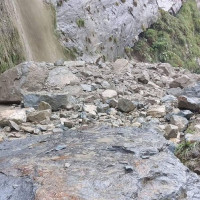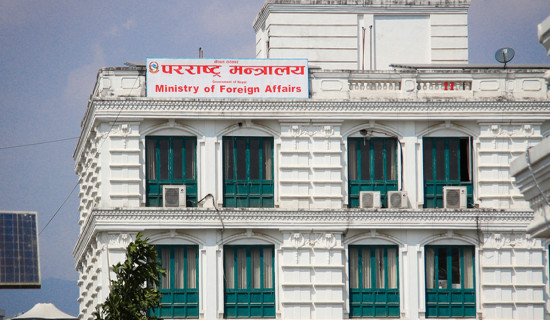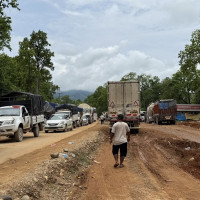- Thursday, 19 June 2025
Sagarmatha Sambaad concludes issuing 25-point ‘Sagarmatha Call for Action’
By A Staff Reporter,Kathmandu, May 19: The first edition of Sagarmatha Sambaad (Everest Dialogue) concluded with a 25-point 'Sagarmatha Call for Action' on Sunday.
The three-day conclave held under the theme 'Climate Change, Mountain and the Future of Humanity’ reaffirmed collective responsibility to save the planet and the future of humanity.
The dialogue reiterated the urgency to hold the increase in the global average temperature to 1.5 degrees Celsius, above pre-industrial levels by accelerating mitigation actions, building adaptive capacity and resilience, addressing loss and damage and strengthening partnerships to ensure a sustainable future for all.
It also encouraged countries to set ambitious emissions reduction targets in their Nationally Determined Contributions (NDCs) to keep 1.5 degrees Celsius alive, aligned with the latest science that calls for urgent and transformative global action.
The Sagarmatha Call for Action recognised that climate change is an unprecedented challenge and that the well-being of present and future generations of humankind depends on an immediate and urgent response.
It also reaffirmed the commitments to implement the United Nations Framework Convention on Climate Change (UNFCCC), the Paris Agreement and the 2030 Agenda for Sustainable Development.
It also recognised the role of mountain glaciers in regulating hydrological cycles and providing essential environmental services to mountain communities and the billions who live downstream in glacier-fed river basins.
It acknowledged the urgency to maintain environmental integrity as mountain glaciers and the cryosphere are receding, putting pressure on snow-fed river systems that constitute the lifeline to species, ecosystems and genetic resources. It also recognised that the loss of glaciers, snow and ice sheets due to climate change will have severe negative impacts on both natural and human systems, if allowed to continue, ultimately threatening the well-being of humanity.
Prioritising the recognition, respect and rewarding of mountain ecosystem services through leveraging existing and innovative financing sources is also one of the agendas in the Sagarmatha Call for Action.
Similarly, other points include promoting climate justice across all climate actions by ensuring fair, inclusive and evidence-based solutions to the developing countries that are particularly vulnerable to the adverse impacts of climate change.
It also asked to acknowledge the relevance of the theme of the first edition of Sagarmatha Sambaad in highlighting the adverse impacts of climate change from mountains to lowlands; forging common understanding and actions to uplift communities in vulnerable situations; and reaffirming commitment to continue working for a just, resilient and sustainable future for all.
It also encouraged dialogues on mountains and climate change agenda with special focus on triple planetary crisis and short-lived climate forcers, given their profound impact on regional climate, monsoons, cryosphere and public health.
Speaking at the concluding session of the Sambaad, which started on Friday, Minister for Foreign Affairs Dr. Arzu Rana Deuba said that the Sambaad was not just an event, but a convergence of ideas and a celebration of shared responsibility.
Minister Dr. Rana also announced that the second edition of the Sagarmatha Sambaad will be held in 2027.
After the concluding programme, Secretary at the Ministry of Foreign Affairs Amrit Bahadur Rai said that the outcomes and recommendations of the Sambaad would be presented at various international forums.
They will be presented and discussed at the upcoming high-level international conference on glacier preservation in Tajikistan later this month, the 80th United Nations General Assembly, and the UN Climate Change Conference (COP30) to be held in Brazil later this year, he said.
Representatives of governments, international organisations, academia, think tanks, the scientific community, civil society, the private sector, media and relevant stakeholders participated in the Sambaad.

















